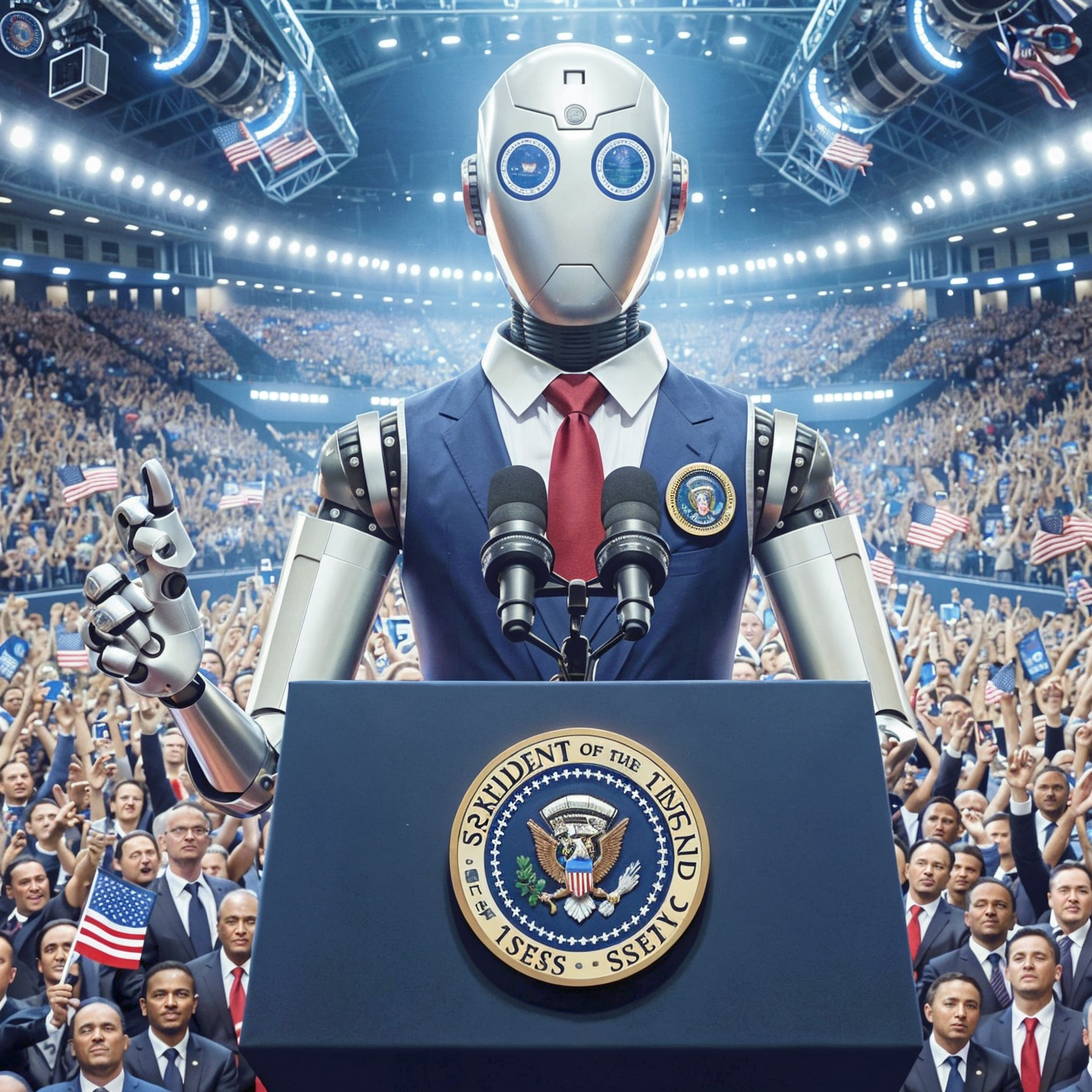In the rapidly evolving landscape of technology and governance, the integration of artificial intelligence (AI) into political processes is no longer a speculative venture but is a short way away on the horizon. For sure, society will grapple with the ethical, practical, and theoretical implications of such a shift.
Imagine a future where political discourse and policy-making are augmented by the omnipresent gaze of AI; where political parties and movements are not just facilitated by AI, but are fundamentally oriented around the integration of such technologies into their core philosophies. If we expand upon this unavaoidable logic, two distinct camps could crystallize: the proponents of AI, advocating for its inexorable utilization in decision-making processes, and the opponents of AI, championing a world where AI’s influence is curtailed or outright banned.
The pro-AI contingent, akin to the champions of capitalist free-market principles, is poised to argue that AI, much like the market, thrives when unencumbered by restrictions. By leveraging AI’s potential to analyze vast swathes of data and generate insights beyond the grasp of human cognition, this camp envisions a streamlined, more effective political process where bureaucracy is supplanted by algorithms and the arduous journey of policy-making is reduced to a series of calculated, ostensibly rational decisions.
Conversely, the anti-AI faction draws parallels to the regulatory instincts of traditional left-wing politics. The call to regulate and restrain AI reflects a broader concern for the preservation of human judgment, empathy, and a somewhat nuanced and humanistic outlook in the political arena. Just as left-leaning parties often advocate for a managed economy that tempers the excesses of unbridled capitalism, so too might they argue for a cautious approach to AI, warning of the dangers of abdicating responsibility to the cold logic of machines.

The looming question remains: which path will prevail in the long arc of history? As AI continues to evolve and embed itself deeper within the fabric of everyday life, the initial victories of the pro-AI faction seem inevitable. However, the ultimate balance between human oversight and algorithmic governance will likely fluctuate, ebbing and flowing with the societal, economic, and technological currents of the times.
On one hand, the boundless potential of AI to revolutionize governance is tantalizing, promising efficiency and a utopian objectivity free from human bias. On the other hand, the fear of an impersonal technocracy, where the nuances of human values and the serendipity of political compromise are subsumed by an opaque digital hegemony, casts a long shadow.
Whether advocating for a controlled approach that upholds the autonomy of human action or embracing a daring exploration of the uncharted potentials of algorithmic governance, the discourse on AI and politics is set to shape the contours of our shared tomorrow.
Whether we elect to ride the crest of the AI wave or to temper its influence with cautious pragmatism, the decisions we make today will resonate through the annals of history.
